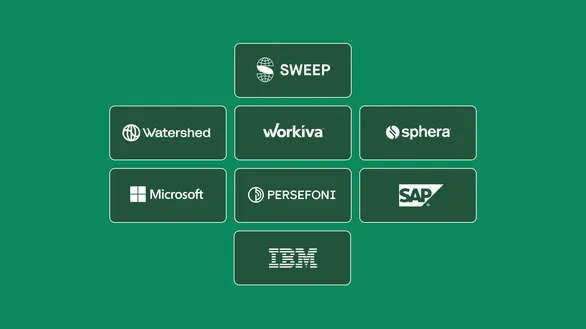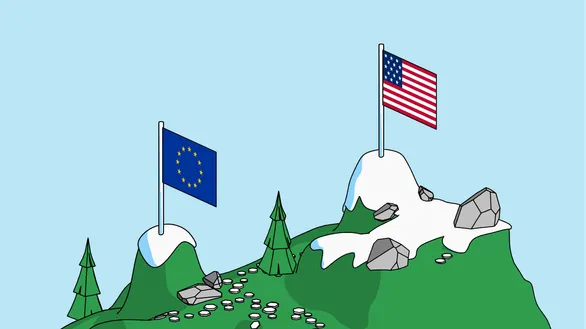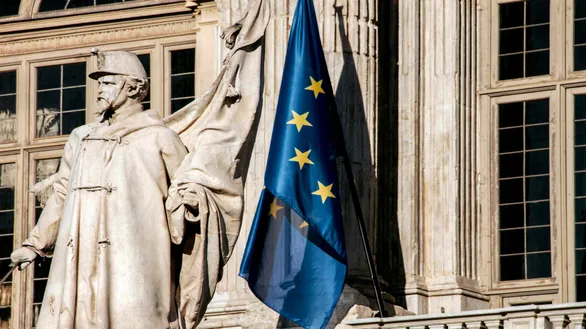Tristan Lecomte is a green business pioneer who believes that agroforestry is the future. We ask him about what motivates him, what keeps him optimistic, and why he has such a thing for trees.
Tristan Lecomte is a serial social entrepreneur. In 1998 he founded France’s leading fair trade brand, Alter Eco, and in 2008 set up PUR Projet, which develops agroforestry and reforestation projects around the world, from Canada to South Korea.
The company is a pioneer of insetting, which it calls ‘harmonising companies with nature from within’. We tracked Tristan down in Thailand, where he lives, to ask him a few questions.
Sweep: You’re a keen advocate for agroforestry (even your nickname is Tree!). Why is that?
Tristan: Almost 20% of carbon emissions come from deforestation and forest degradation – and 90% of deforestation is the result of agriculture.
Agroforestry involves planting trees alongside or around agricultural crops – it is a way to balance agriculture with nature. Trees have an amazing ability to regenerate soils and water and improve biodiversity. They sequester carbon, protect crops from the effects of climate change, diversify the incomes of farmers…. Trees, in fact, are the best investment you can make on Earth.
And yes, my name is Tree here in Thailand because Tristan is too complicated in the local language!
Sweep: What is the future for agroforestry? Do you think it will become more widely adopted?
Tristan: Agroforestry is the future, especially for small-scale farmers and in tropical countries. Out of 1.2 billion farmers, 1 billion have just 1 hectare to cultivate, and for them agroforestry is a great way to make their farm more resilient and regenerative, and to diversify their income.
It works very well on large, mechanised farms such as those in Europe and the US, with lower plantation densities and hedgerows. Trees are a great way to compensate for all the negative collaterals of conventional agriculture.
Sweep: What motivated you to set up PUR Projet?
Tristan: At the time I was importing and distributing fair trade and organic products under the social enterprise Alter Eco, and we wanted to offset the carbon footprint of our products. We started to plant trees with our cocoa suppliers, and that's how I started PUR Projet, to help companies take climate action by planting trees within their supply chain. It’s what we now call Insetting.
Sweep: Can you tell us more about insetting?
Tristan: It’s similar to offsetting, when a business makes payments to a project that reduces or removes carbon in an effort to compensate for their emissions. The big difference with insetting is that you support projects and initiatives within your own supply chain. The goal is to reduce your impact right along the value chain – not only in terms of emissions, but also the socio-economic impact, the impact on biodiversity, soils, water, and so on.
Let me give you another example – Nespresso. Every year, as part of its climate strategy, it plants trees directly in and around the farmland in the communities where Nespresso sources its coffee. By doing so, not only is it working on its carbon footprint, but it’s also having a direct, positive impact on the farming communities – and the very environment on which its business depends.
Sweep: Why is it better than offsetting?
Tristan: Because you offset the carbon footprint of your company within its value chain, it’s more legitimate and transformative – of both your business and your supply chains. It benefits your business because it makes sourcing more secure in the long-term and helps you strengthen and control your supply chains.
Sweep: The agri-food sector accounts for 30% of global emissions. How do you make an entire value chain work towards the same objective of reducing emissions?
Tristan: We can act at multiple levels of supply chains, from farm to fork. The priority is always to try to avoid and reduce, and to compensate, ideally via insetting the residual footprint, towards net zero.
Sweep: How optimistic are you about our collective ability to tackle climate change?
Tristan: We must stay hopeful, otherwise it’s too depressing. And that does not encourage action. What is ahead of us is a gigantic challenge, but we have no other choice than to engage. Every day 10 million trees are cut down, and with PUR Projet we’ve only planted 18 million trees in 12 years. So we still have a long way to go. But every journey starts with a first step, right?
Tristan Lecomte is founder and CEO of PUR Projet.
_Zr0RO4.webp)



